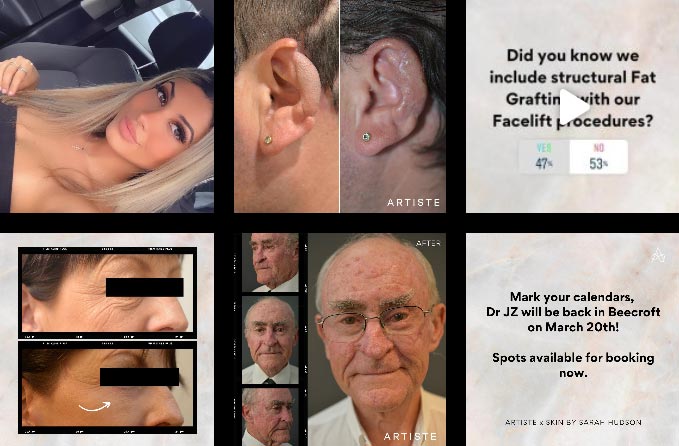Is There a Right Age for a Facelift?
Model featured in photography
Facelift surgery is a procedure aimed at addressing certain changes in facial structure and skin that occur over time. Many individuals considering a facelift wonder if their age is the right time to undergo the procedure. The truth is, there is no universally “perfect” age for a facelift, as the decision depends on a range of factors unique to each person. There are several factors that can affect a person’s skin such as genetics, level of sun exposure and lifestyle.
When Should I Consider a Facelift?
There is no universally “right” time for a facelift, as the decision is highly personal and depends on factors such as skin condition, ageing patterns, and individual goals. While many people begin considering a facelift in their 40s or beyond, reaching a certain age does not mean you should—or need to—undergo the procedure. A facelift is not about meeting external expectations but about addressing concerns that genuinely matter to you.
Some individuals may also explore complementary procedures, such as a neck lift, eyelid surgery (blepharoplasty), or brow lift, to refine specific areas of the face and neck. However, these are not necessary for everyone and should only be considered if they align with your personal goals. A thorough consultation with a qualified surgeon can help you explore your options and determine what approach, if any, is most suitable for you.
Am I Too Old for a Facelift?
The age range given above is just an example. The only way to know whether it’s safe for you to undergo a facelift way beyond that age is through proper consultation with your surgeon. You must be in good overall health and can safely undergo surgery and recovery.
Deciding whether or not to proceed should not be solely based on age but on other considerations like your personal and mental well-being, facial anatomy, skin condition, safety, viability and the like. Consult with a qualified and experienced surgeon to get more clarity on the procedure.
Disclaimer: At Artiste Plastic Surgery, our Plastic Surgeons led by Dr Jack Zoumaras have been trained to the highest possible degree. All surgery has risks and it is always advised to get a second opinion. Risks are very real and we cannot guarantee any result. Results are illustrated as a guide only. All risks are managed and any need for revision surgery or complications (1-5%) can be managed by our specialist plastic surgeons.
Any statements on how you will feel is based on Level V Evidence:
Level V: How you will feel after plastic surgery varies between individuals, depending on psychological and physical factors. Our internal research is based on how patients in our practice feel after surgery.
The blogs are not a substitute for a medical consultation and do not form as part of the doctor to patient relationship.
SHARE THIS ARTICLE
Aug27
What Men Need to Know About Facial Rejuvenation
Disclaimer: At Artiste Plastic Surgery, our Plastic Surgeons led by Dr Jack Zoumaras have been trained to the highest possible degree. All surgery has risks and it is always advised ...
Aug27
Signs You’re Ready for a Facelift
Disclaimer: At Artiste Plastic Surgery, our Plastic Surgeons led by Dr Jack Zoumaras have been trained to the highest possible degree. All surgery has risks and it is always advised ...
ABOUT ARTISTE
Artiste Plastic Surgery is an Award Winning Specialist Plastic Surgery practice led by internationally trained Dr. Jack Zoumaras, Plastic Surgeon and Peer Reviewed Face Surgeon
Artiste offers the latest Cosmetic Surgical Procedures of the Face, Breast and Body, inspired from leading centres around the world.
STAY IN THE LOOP
Enter your email address below to receive updates on new articles and VIP access to promotions and special offers.
FOLLOW US ON INSTAGRAM
